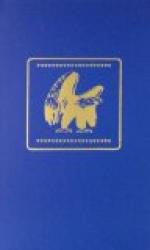Mark’s vocabulary ran the whole gamut of life itself. In Paris, in his appearance in 1879 before the Stomach Club, a jolly lot of gay wags, Mark’s address, reports Paine, “obtained a wide celebrity among the clubs of the world, though no line of it, not even its title, has ever found its way into published literature.” It is rumored to have been called “Some Remarks on the Science of Onanism.”
In Berlin, Mark asked Henry W. Fisher to accompany him on an exploration of the Berlin Royal Library, where the librarian, having learned that Clemens had been the Kaiser’s guest at dinner, opened the secret treasure chests for the famous visitor. One of these guarded treasures was a volume of grossly indecent verses by Voltaire, addressed to Frederick the Great. “Too much is enough,” Mark is reported to have said, when Fisher translated some of the verses, “I would blush to remember any of these stanzas except to tell Krafft-Ebing about them when I get to Vienna.” When Fisher had finished copying a verse for him Mark put it into his pocket, saying, “Livy [Mark’s wife, Olivia] is so busy mispronouncing German these days she can’t even attempt to get at this.”
In his letters, too, Howells observed, “He had the Southwestern, the Lincolnian, the Elizabethan breadth of parlance, which I suppose one ought not to call coarse without calling one’s self prudish; and I was often hiding away in discreet holes and corners the letters in which he had loosed his bold fancy to stoop on rank suggestion; I could not bear to burn them, and I could not, after the first reading, quite bear to look at them. I shall best give my feeling on this point by saying that in it he was Shakespearean.”
“With
a nigger squat on her safety-valve”
John
Hay, Pike County Ballads.
“Is there any other explanation,” asks Van Wyck Brooks, “’of his Elizabethan breadth of parlance?’ Mr. Howells confesses that he sometimes blushed over Mark Twain’s letters, that there were some which, to the very day when he wrote his eulogy on his dead friend, he could not bear to reread. Perhaps if he had not so insisted, in former years, while going over Mark Twain’s proofs, upon ’having that swearing out in an instant,’ he would never had had cause to suffer from his having ‘loosed his bold fancy to stoop on rank suggestion.’ Mark Twain’s verbal Rabelaisianism was obviously the expression of that vital sap which, not having been permitted to inform his work, had been driven inward and left thereto ferment. No wonder he was always indulging in orgies of forbidden words. Consider the famous book, 1601, that fireside conversation in the time of Queen Elizabeth: is there any obsolete verbal indecency in the English language that Mark Twain has not painstakingly resurrected and assembled there? He, whose blood was in constant ferment and who could not contain within the narrow bonds that had been set for him the roitous exuberance of his nature, had to have an escape-valve, and he poured through it a fetid stream of meaningless obscenity—the waste of a priceless psychic material!” Thus, Brooks lumps 1601 with Mark Twain’s “bawdry,” and interprets it simply as another indication of frustration.




